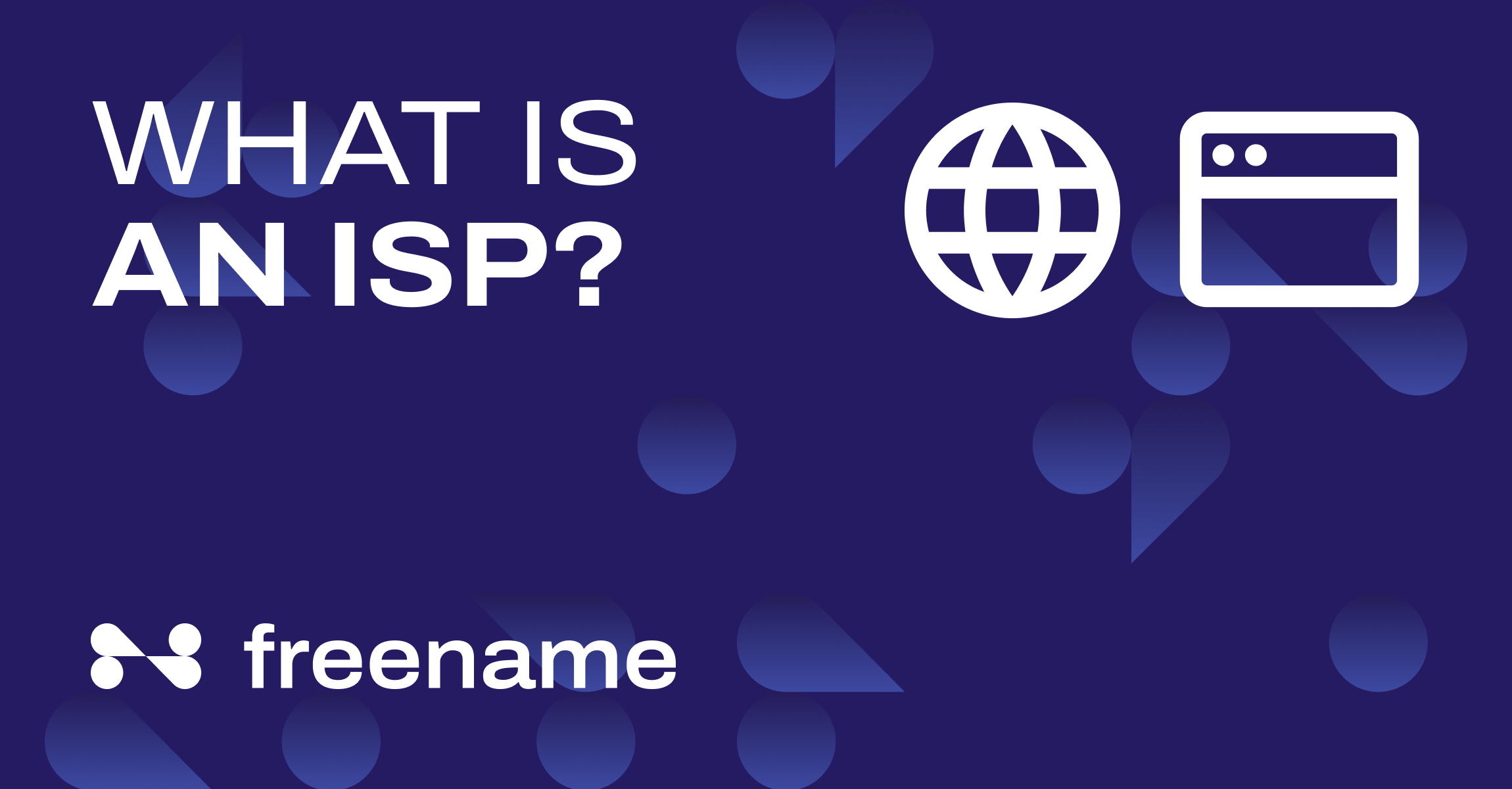Internet Service Provider (ISP): Why It Matters & How To Choose
This article is a beginner’s stop shop for all things Internet Service Providers (ISPs) worldwide. It doesn’t matter whether you are new in the digital space or looking for more knowledge on ISPs because this comprehensive piece gives you information about this aspect of the Internet.
What does ISP mean?
Imagine yourself in a large library full of valuable information, but you will need a special key card to access it. That’s where ISPs come in! This refers to an Internet Service Provider, or ISP, facilitating your connection between the vast expanse of the Internet and yourself. It is an organization that performs an essential function of connecting us globally so that we can browse websites, watch videos online, send emails, and do many other activities that define our lives in the modern world.
Why Are ISPs Important and Why Should You Care About Them?
As before, being connected has become a necessity rather than a luxury, with digitization taking center stage. The internet has permeated almost every aspect of our lives, affecting how we work, learn, communicate, and enjoy ourselves. However, it is important to note that this huge virtual universe could not have been explored without Internet Service Providers (ISPs) playing their crucial part.
ISPs act as gateways for accessing webpages, video streaming sites, email servers, and everything else on the digital scale. Therefore, this article seeks to answer why understanding ISPs makes sense:
- The Power of Choice: Choosing your ISP directly affects how well you experience your time online. Knowing the types of ISP providers, such as satellite ones, their plans available, and restrictions, means informed decisions can be made according to usage patterns.
- Ensuring Speed and Performance: Not all ISPS are equal in what they offer. Some provide ultra-fast speeds ideal for gamers or online video editors, while others provide more basic plans for those who only casually browse the web. By understanding these choices, you can choose an ISP provider that meets your performance and speed requirements.
- Understanding Costs and Data Caps: ISPs have unique tariffs and data caps (limits imposed on the amount of data one can use within a given period). This way, you can choose a suitable package that does not exceed your budget yet incurs extra costs due to exceeding the data limit during the billing period.
- Impact on Online Activities: What an ISP is capable of is what one can do over the internet. For example, a low-bandwidth ISP may cause problems when participating in video conference calls or watching high-definition videos online. Your ISP’s limitations enable you to manage your expectations and modify your internet activities accordingly.
- The Future of the Internet: ISPs are anticipated to keep evolving and playing even greater roles. Understandably, we need to know where our ISPs are going so that we can adjust our dependence upon them as technology progresses.
Understanding ISPs gives you control over what you do online and ensures you stay connected always, allowing you to prosper digitally.
The Hidden Benefits of an ISP
Though internet access is the primary function, many ISPs offer additional services. These include:
- Email facilities: Streamlining the creation of an email account is often done through an ISP’s bundled offer.
- Web hosting services: Individuals or businesses can normally obtain web hosting solutions from many ISPs to enable them to host their websites online.
- Technical support: Internet service providers (ISPs) typically provide technical support to customers who need help fixing internet connectivity problems.
- Equipment rental: An example is renting out routers and modems by some ISPs.
- Domain registration: This involves registering for a domain name that serves as your website address. This acts as your website’s address, making it easy for people to find you online.
Types of ISPs
ISPs have no one-size-fits-all solution. Below are some popular ones:
- Cable ISPs : These are common types of broadband connections where coaxial cables are used. Cable connections offer good speeds but might experience occasional lag compared to alternatives.
- DSL (Digital Subscriber Line): ISPs- DSL uses traditional phone lines for its infrastructure. Even though it may not be very fast, it provides a reliable option for numerous places.
- Fiber Optic ISPs: This is where fiber optic connections come into play in the world of ISPs. Regarding speed, they stand above all other types of ISP because they use fiber optic cables that carry data via light pulses, resulting in ultra-fast and dependable connections.
- Satellite ISPs: For those in remote areas without access to traditional options, satellite-based internet service providers provide internet connectivity through satellites orbiting the Earth. Satellite internet can have high latency due to the long distances between providers and consumers.
How to Choose the Right ISP for You
Choosing an appropriate Internet Service Provider (ISP) requires careful thought. Here are some factors which may help you in making a decision:
- Availability in Your Area: Not all areas have access to all ISPs, so check who provides service in your location first.
- Internet Needs: Know your patterns of using the internet. Will you need very fast speeds for gaming or video editing? Or would you like a basic package for browsing/emailing?
- Plan Options and Pricing: Look at what plans different ISPs offer in your area. When considering the price, always note how much data you get per month, how many Mbps (megabytes per second) download/upload speeds are available with each package, or if there are any add-ons included with the purchase.
- Customer Service Reputation: Look into customer reviews for these companies’ customer support departments because it is important to have dependable and responsive help when things go wrong with your internet service.
Protecting Your Online Experience
The relationship between ISPs and consumers is not without its complexities. Let’s explore some of the crucial advocacy issues within this context.
- Net Neutrality: This principle ensures that all internet traffic is treated equally. In simple terms, this means that ISPs should not prioritize specific content or slow down certain data types, which is called throttling. The debate on net neutrality goes on as it can greatly influence the diversity and accessibility of online content.
- Data Caps and Throttling: Most ISPs impose data caps on data consumption for a given billing period. Overshooting these caps may result in additional charges or throttling, which slows your internet speed. Consumer advocates demand greater transparency and more equitable practices from internet service providers.
Understanding these problems is important to enable you to make informed decisions about your internet service provider. Additionally, it’s important to know as much as possible about ongoing regulation movements and advocacy efforts that intend to guard against consumer rights abuses in the digital world.
ISPs Around the World
ISPs operate differently across the globe. Here is how it plays out at international levels:
- Infrastructure and Development: Internet service availability and quality can vary significantly between developed and less developed countries. Infrastructure investment and technological development are significant factors affecting internet accessibility globally.
- Government Regulations: The activities of ISPs may be affected by government policies and regulations, which might differ among countries. For example, pricing models, content restrictions in certain regions, or competition among entrants into the ISP market.
- Digital Divide: Those who have access to the internet versus those who do not pose a digital divide problem. Recognizing this global context reveals ongoing attempts to close this gap so everyone can access online resources equally.
The Importance of ISPs
Internet service providers are important in connecting you to the online world. You need this to make well-informed decisions about the kind of ISP package you want. Whichever category you find yourself in, being a casual web surfer or a game enthusiast who hungers for bandwidth, it is, therefore, necessary to have an excellent ISP that will make your internet experience smooth and fun.
Remember that your ISP address is your unique digital signature, allowing you to connect with and communicate on the vast World Wide Web. While browsing through websites next time or even streaming videos, take a moment and appreciate the crucial part played by ISPs in enabling these digital experiences.
ISP: FAQs Answered
Does Google Act as an Internet Service Provider?
No, Google does not primarily operate as a search engine giant, but it does offer Google Fiber’s internet services in a few areas.
How many providers are there?
Determining the exact number of ISPs worldwide is difficult because regional markets vary greatly, and numerous independent firms operate locally or regionally. However, several companies offer ISP services across continents, with different offerings covering various parts of the world.
What distinguishes IP from ISP?
An Internet Protocol (IP) is a special name representing the numerical number provided to an Internet device. It is like a unique code for your gadget in a network. Conversely, an ISP relates to your internet connection and assigns you an IP address.
Can I refer to a WiFi provider as an ISP?
No, not always. Although some ISPs also have Wi-Fi hotspots, most Wi-Fi providers only provide wireless internet access in specific locations such as coffee shops or airports. On the other hand, an ISP provides a wider internet connection that flows into your Wi-Fi network.







